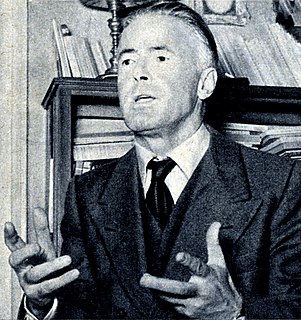A Quote by Pope Benedict XVI
We cannot live, we cannot look at the truth about ourselves without letting ourselves be looked at and generated by Christ in daily Eucharistic Adoration.
Related Quotes
There are two laws that we had better take to be absolute. The first is that as we cannot exempt ourselves from living in this world, then if we wish to live, we cannot exempt ourselves from using the world. If we cannot exempt ourselves from use, then we must deal with the issues raised by use. And so the second law is that if we want to continue living, we cannot exempt use from care.
Love without truth is sentimentality; it supports and affirms us but keeps us in denial about our flaws. Truth without love is harshness; it gives us information but in such a way that we cannot really hear it. God's saving love in Christ, however, is marked by both radical truthfulness about who we are and yet also radical, unconditional commitment to us. The merciful commitment strengthens us to see the truth about ourselves and repent. The conviction and repentance moves us to cling to and rest in God's mercy and grace.
The fact that God accepts us should be our motivation for accepting ourselves. If we cannot accept ourselves the way we are, with our limitations and assets, weaknesses as well as strengths, shortcomings as well as abilities; then we cannot trust anyone else to accept us the way we are. We will always be putting on a front, building a facade around ourselves, never letting people know what we are really like deep down inside.
Humans need Jesus Christ as a necessity and not as a luxury. You may be pleased to have flowers, but you must have bread. . . . Jesus is not a phenomenon, He is bread: Christ is not a curiosity, He is water. As surely as we cannot live without bread, we cannot live truly without Christ: If we know not Christ we are not living, our movement is a mechanical flutter, our pulse is but the stirring of an animal life.



































